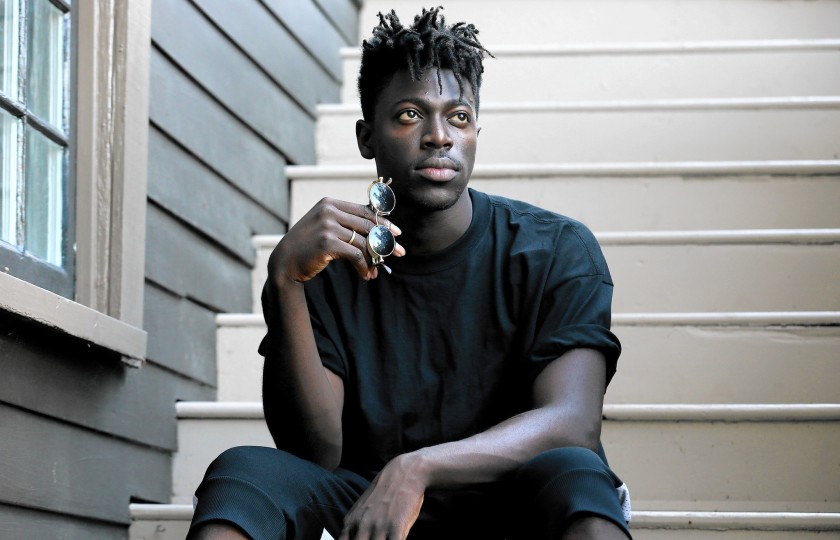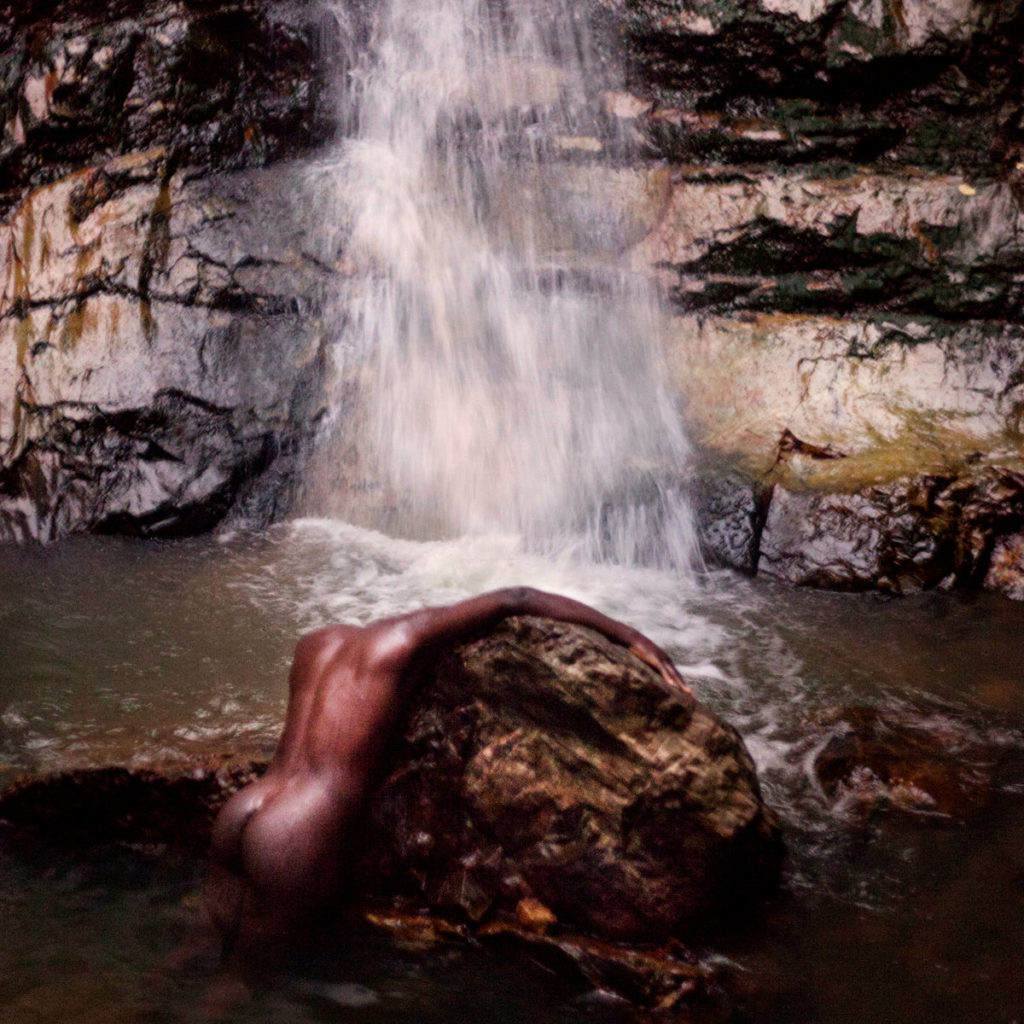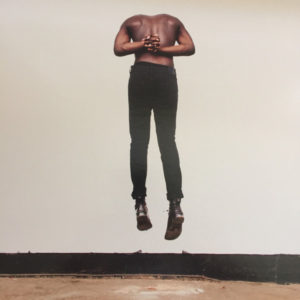The Road To græ
Since emerging in 2014 with his self-released cassette EP, Mid-City Island, MOSES SUMNEY has ridden a wave of word-of-mouth praise, hushed recordings, and dynamic live performances at distinguished festivals around the world and alongside forebears like David Byrne, Karen O, Sufjan Stevens, and Solange. In a voice both mellifluous and haunting, Sumney makes future music that transmogrifies classic tropes, like moon-colony choir reinterpretations of old jazz gems. His lyrics narrate a personal journey through universal loneliness atop otherworldly compositional backdrops.
In 2017, The California and Ghana-raised troubadour widened the spectrum of his heretofore “bedroom” music with his debut album Aromanticism, a concept record about lovelessness as a sonic dreamscape. Released to great critical acclaim, Aromanticism was widely regarded as one of 2017’s best albums.
For the followup, Sumney turned towards a sound that he spent years searching for.

It began in 2013, when he first tried to break into the Los Angeles music scene — and got interest from record labels almost immediately.
“I expected to spend many years totally grinding in obscurity,” Sumney says of his early experience in the music industry. “So, in a lot of ways, it was living the dream, ‘making it,’ making a name for myself in the music industry — but also discovering that it’s not all it’s cracked up to be.”
The experience didn’t sit right with him. Sumney felt typecast by the labels, pushed into a certain image while he was still searching for his own unique sound. So he turned the labels down, eventually moving to Asheville, N.C. and away from the hub of the music industry. That resistance to labels is reflected in Sumney’s music: Across two discs, grae is all about defying expectation, genre and categorization.
The New Album
On græ, Sumney lets out everything inside of him. The album is bigger, in every sense, a 20-song double album that Sumney saw fit to release in two parts (the first half of the album appeared in February). Where Aromanticism was intimate and sleek, græ is rangy, sprawling, a riot of moods from lustful to angry to broken-hearted. He has summoned a battalion of collaborators, including production from Daniel Lopatin, basslines from Thundercat, saxophone from Shabaka Hutchings, horn parts from the English art-rock group Adult Jazz, writing credits from James Blake and author Michael Chabon. Everything Sumney’s ever done or tried to do is here.
“Virile,” the single that preceded “Polly,” is in many ways more representative of the album’s omnivorous ambition. In the video, Sumney convulses across the fog-swirled floor of a meat locker, his body as flawless as a marble statue while carcasses swing behind him on hooks. The lyrics are a withering send-up of the pointlessness of toxic masculinity in a world where the body inevitably turns “to dust and matter.” “Cheers to the patriarchs,” he sings bitterly over bludgeoning stabs of guitar from Noah Kardos-Fein of the NYC noise-rock duo Yvette and string arrangements from Rob Moose. Like Perfume Genius’ Mike Hadreas, Sumney mingles the cerebral and the carnal, eroticism and disgust, until the sensations are indistinguishable.
He also shares Hadreas’ yearning to escape his own shell. On “Gagarin,” which interpolates a piece by the late Swedish pianist Esbjorn Svensson, Sumney sings in a pitched-down voice of wanting to “surrender my life to something bigger than me.” Sumney’s voice pours like tar onto the sound of a jazz piano and eventually the whole track turns ectoplasmic. The final minute sounds like the birth of a universe, with synths streaking like stardust before melting down amid the formless cries of Sumney’s digitally altered voice. The HD sheen of the mix—you can practically see the air tremble around the cymbal splashes—is a bold contrast with the formless abstraction of the music, like a private-press 1970s new age record remastered by Dr. Dre.
The most powerful moments on græ examine the distance between this wariness and the loneliness it produces. “I am not at peace with dying alone/But I am not at war either,” he sings on “Neither/Nor,” a negation that might be Sumney’s most resounding statement of self. His music is unique in the chilly way it yearns for warmth; he can often be coy, flirtatious, beseeching. “Sometimes I want to kiss my friends/You don’t want that…do ya?/You just want someone to listen to ya/Who ain’t tryna screw ya,” he croons on “In Bloom.” The stacked harmony vocals bear down on the line “Sometimes I want to kiss my friends,” and it proves as indelible, and maybe more meaningful, than his ideas about patriarchy or creative sovereignty.
The album highlights—lullabies like “Lucky Me” or “Me In 20 Years”— come from a place where Sumney often finds himself: his glittering voice, resplendent and alone, aching in solitude. This is the range of the coffeehouse whisper, his hand atop yours on the table. This is still where we feel him most.
græ is in-stock now at HORIZON RECORDS‘ webstore along with these other Moses Sumney titles, and it’s available on LP and CD for curbside pickup. Click HERE to visit the webstore, or call 864-235-7922 to arrange for curbside pickup!












